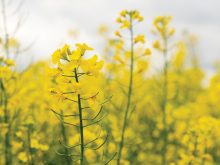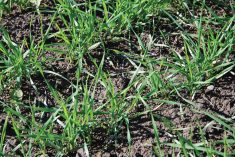Bangladesh has adopted a nearly $8-billion plan to ensure food security over the next five years, Food and Disaster Management Minister Muhammad Abdur Razzaque said April 2.
“We have finalized the investment plan for our food security until 2015 and have full support from our development partners to implement it,” he told Reuters.
The government recently approved the plan and expects financial assistance at nearly $5 billion for it, the minister said, adding that the “rest of the money will come from our own resources” and that the plan would create employment.
Read Also

Precision 4R cuts farm greenhouse gas emissions
Lower areas in your field tend to emit more greenhouse gas, research shows that precision 4R nutrient stewardship practices can help mute the trend
Nearly 40 per cent of Bangladesh’s more than 150 million people live in poverty, surviving on less than $1 a day.
Razzaque said public-sector investment in agriculture has declined and this trend must be reversed to ensure food for all.
Bangladesh, like other Asian and African nations, has moved to build stocks of staples such as rice and wheat in order to combat surging food costs and avoid future supply shocks.
The government is importing 2.2 million to three million tonnes of food grain, including 1.2 million tonnes of rice, this fiscal year, up from nearly 550,000 tonnes in the previous year.
Rising food prices pushed Bangladesh’s annual inflation rate up to nine per cent in January from 8.3 per cent a month earlier.
Food inflation in January was 11.9 per cent, the highest since Sept. 2008 when food inflation hit 12.1 per cent.
With public discontent growing over high prices, the government has increased its discount grain distribution target to three million tonnes for the year to June from 2.7 million.


















